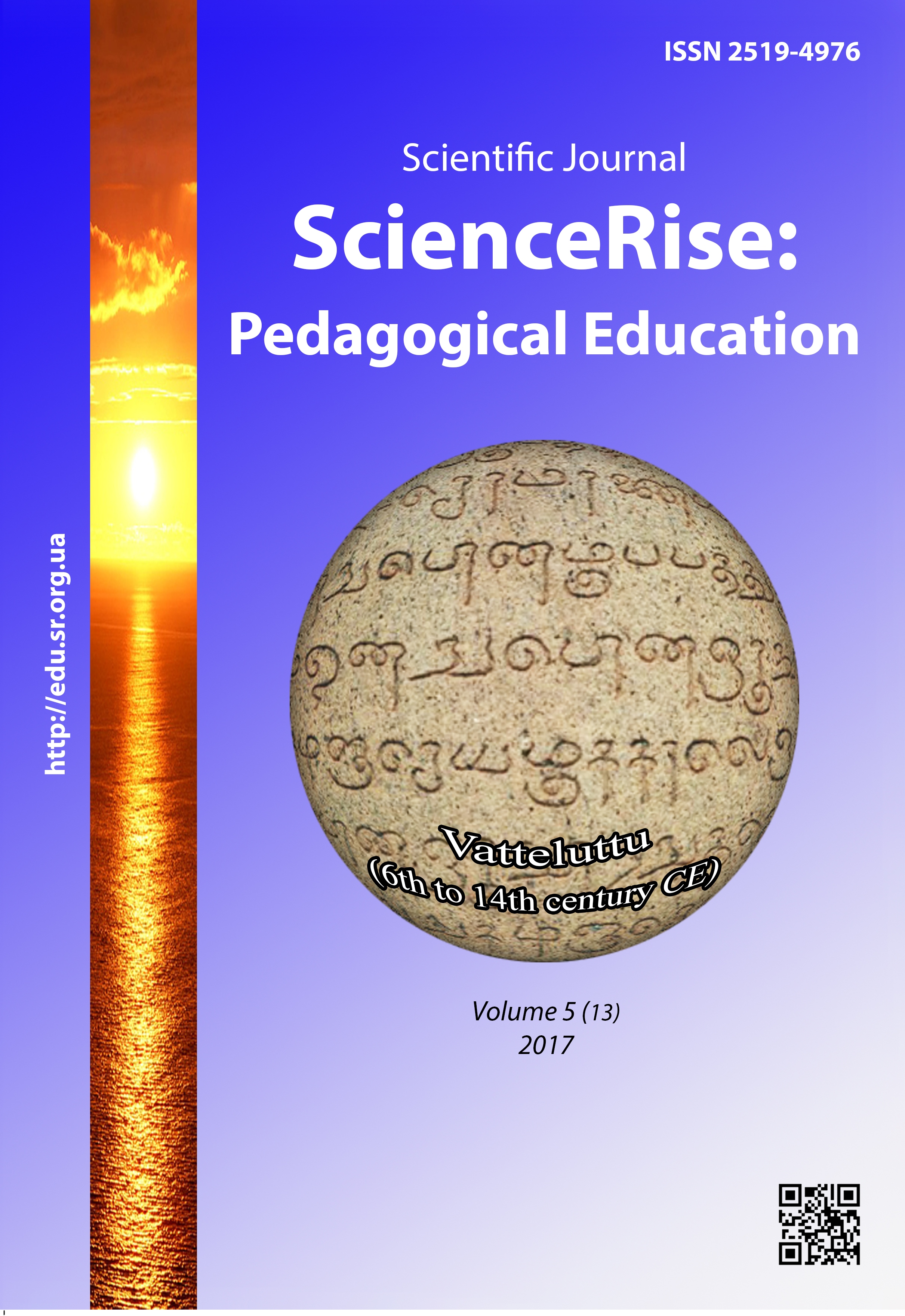Methodological aspects of teaching specialists in environment monitoring in the system of postgraduate education
DOI:
https://doi.org/10.15587/2519-4984.2017.102748Keywords:
postgraduate educationі, organization methodology, environment monitoring, professional competence, teaching methodsAbstract
At the study the theoretical analysis of the necessity of environmental monitoring teaching organization in adult education was realized and professional competences, formed in students, according to their professional activity, were determined. This study favors the elaboration of the methodology of environment monitoring teaching organization and substantiation of its main components for the professional postgraduate training of specialists-ecologists. The organization of environment monitoring teaching process is directed on realization of multifunctional, integral functions in specialists-ecologists, namely innovative, adaptive, cumulative, analytic-projecting, organizational-managerial, diagnostic ones. At the study the main subjects of activities were determined in content modules for preparation of qualification improving courses, obligatory for learning, because they form the base for professional, system-modeling, scientific-research competences.
At the environment monitoring teaching organization were separated 3 synchronized stages: orientational or preparatory; organizational, system-modeling of main; activity. The observance of these stares in the environment monitoring teaching organization provides continuousness, use of diverse teaching forms and methods, namely the active introduction of innovative technologies that is typical for the teaching of adults
References
- Protasova, N. H. (1998). Pislyadyplomna osvita pedahohiv: zmist, struktura, tendentsiyi rozvytku. Kyiv, 176.
- Pyekhota, O. M., Putsov, V. I., Naboka, L. Ya. et. al. (2006). Androhohichni problemy u pidhotovtsi vykladachiv dlya systemy pislyadyplomnoyi osvity. Kyiv-Chernovtsy: Bukren, 96.
- Ratsina, T. V. (2012). Pislyadyplomna osvita: shlyakhy udoskonalennya yakosti znan. Upravlinnya yakistyu pidhotovky kadriv z vyshchoyu osvitoyu cherez udoskonalennya protsedur litsenzuvannya, akredytatsiyi ta reytynhuvannya. Dnipropetrovsk: Natsionalnyi hirnychyi universytet, 1, 130–133.
- Saukh, P. Yu. (Ed.) (2011). Innovatsiyi u vyshchiy osviti: problemy, dosvid, perspektyvy. Zhytomyr: Vyd-vo ZhDU im. I. Franka, 444.
- Dobroskok, I. I., Kotsur, V. P., Nikitchyna, S. O. et. al. (2008). Innovatsiyni pedahohichni tekhnolohiyi: teoriya ta praktyka vykorystannya u vyshchiy shkoli. Pereiaslav-Khmelnytskyi: Vyd-vo S. V. Karpuk, 284.
- Sysoyeva, S. O., Aleksyuk, A. M., Volovyk, P. M. et. al.; Sysoyeva, S. O. (Ed.) (2001). Pedahohichni tekhnolohiyi u neperervniy profesiyni osviti. Kyiv: VIPOL, 504.
- Pro vyshchu osvity (2014). Verkhovna Rada Ukrayiny, No. 1556-VII. Available at: http://zakon3.rada.gov.ua/laws/show/1556-18
- Lukyanova, L. B., Anishchenko, O. V. (2014). Osvita doroslykh: korotkyi terminolohichnyi slovnyk. Kyiv: PP Lysenko M. M., 108.
- Lukyanova, L. B. (2011). Kontseptsiya osvity doroslykh v Ukrayini. Kyiv: PP Lysenko M. M., 24.
- Global report on adult learning and education (2009). UNESCO Institute for Litelong Learning. Hamburg, 157. Available at: http://uil.unesco.org/fileadmin/keydocuments/AdultEducation/en/GRALE_en.pdf
Downloads
Published
How to Cite
Issue
Section
License
Copyright (c) 2017 Natalia Bordіug, Natalia Ridey

This work is licensed under a Creative Commons Attribution 4.0 International License.
Our journal abides by the Creative Commons CC BY copyright rights and permissions for open access journals.
Authors, who are published in this journal, agree to the following conditions:
1. The authors reserve the right to authorship of the work and pass the first publication right of this work to the journal under the terms of a Creative Commons CC BY, which allows others to freely distribute the published research with the obligatory reference to the authors of the original work and the first publication of the work in this journal.
2. The authors have the right to conclude separate supplement agreements that relate to non-exclusive work distribution in the form in which it has been published by the journal (for example, to upload the work to the online storage of the journal or publish it as part of a monograph), provided that the reference to the first publication of the work in this journal is included.







